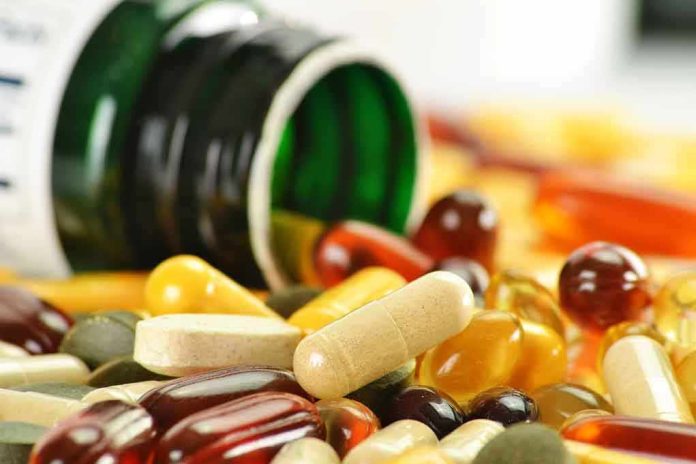
A shocking recall of a popular bladder control supplement exposes vulnerabilities in consumer safety, pointing to a broader need for regulatory reform.
Story Snapshot
- The MyBladder supplement was recalled due to E. coli contamination.
- Affected products were sold on major platforms like Amazon and Walmart.
- This incident highlights the risks associated with supplement safety.
- Potential regulatory changes may arise from this recall.
Recall Details and Consumer Concerns
The nationwide recall of MyBladder, a widely-used bladder control supplement, was announced on October 28, 2025, by Purity Products. This urgent action followed the detection of two E. coli strains, O7:K1 and 1303, in one of its product lots. The supplement, which was sold through major retailers like Amazon and Walmart, prompted immediate warnings for consumers to cease usage and seek refunds. Those experiencing symptoms were advised to contact healthcare providers for guidance.
https://www.fda.gov/safety/recalls-market-withdrawals-safety-alerts/purity-products-announces-recall-dietary-supplement-my-bladder-because-possible-health-risk
This incident underscores persistent safety issues within the supplement industry, particularly as it pertains to manufacturing and quality control. Given the supplement’s target demographic—older adults and individuals with urinary health concerns—the recall carries significant implications for consumer trust and safety. The situation raises critical questions about the standards and oversight applied to supplement production.
Industry Implications and Regulatory Challenges
The recall has reignited debates over the regulatory framework governing dietary supplements in the United States. Unlike pharmaceuticals, supplements are subject to less stringent oversight, placing the onus of safety largely on manufacturers. This incident may serve as a catalyst for regulatory bodies like the FDA to push for stricter controls and monitoring requirements, ensuring that similar contamination risks are mitigated in the future.
Other food and supplement recalls, such as those involving organic walnuts, have similarly highlighted the need for improved safety protocols. The potential for increased regulatory scrutiny could lead to significant changes in how supplements are tested and approved for public consumption, aiming to safeguard consumer health more effectively.
Economic and Social Repercussions
The financial implications for Purity Products are substantial, encompassing the costs of issuing refunds and managing the logistics of a nationwide recall. Additionally, this event has eroded consumer confidence in dietary supplements, a sector already under scrutiny for safety and efficacy issues. Retailers like Amazon and Walmart face potential reputational risks as they work to swiftly remove affected products from their platforms, underscoring the interconnectedness of supply chain and consumer safety.
The broader industry may see a ripple effect, with increased pressure on manufacturers to adopt more rigorous testing and quality assurance measures. This could ultimately lead to a more robust and consumer-friendly supplement market, albeit with potential increases in production costs and regulatory compliance burdens for companies.
Sources:
ConsumerLab.com – MyBladder Bladder Control Supplement Recalled Nationwide for E. Coli




